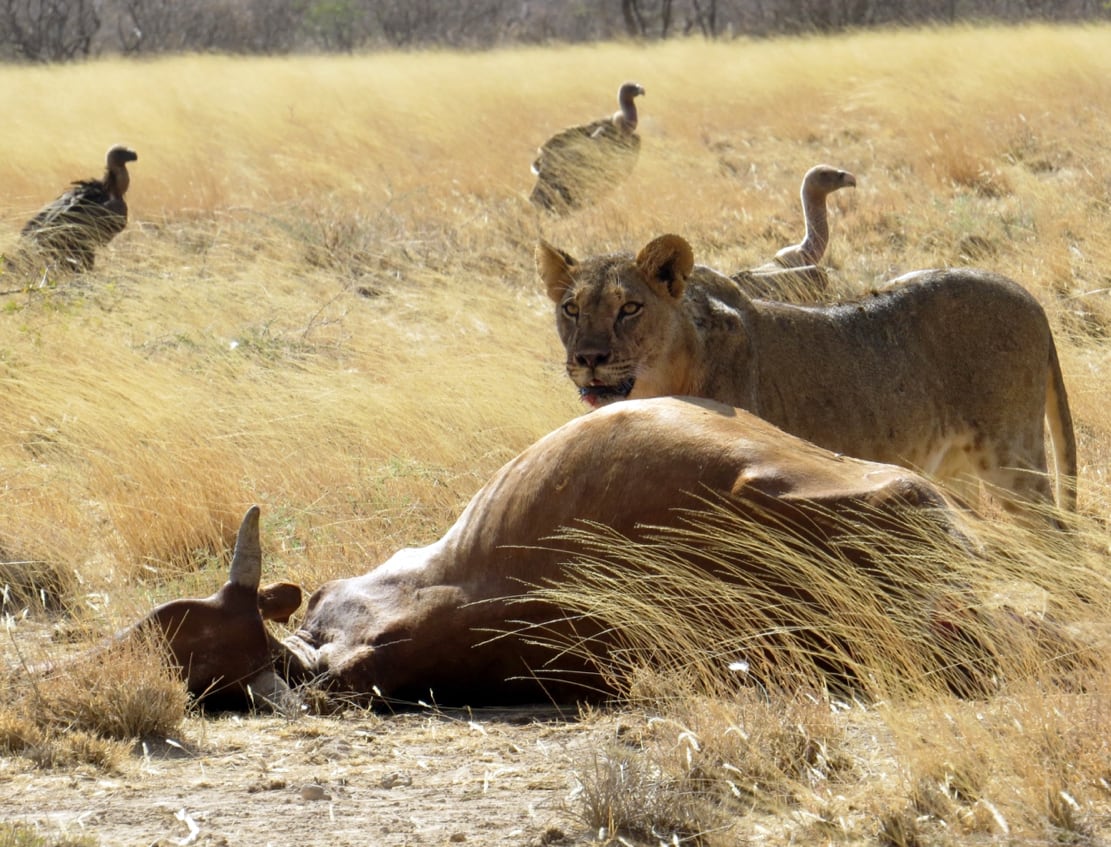It takes courage to live alongside lions. As they navigate the landscape in search of prey and cover, lions in human-occupied spaces often come into contact with people, particularly when they prey on people’s livestock. While these landscapes have been shared over generations, understandably, people get angry when lions take their livestock – which symbolises their wealth, their culture, and their food. When this happens, people sometimes retaliate by shooting, spearing, or poisoning lions and other large carnivores. Retaliatory killing has been conclusively identified as one of the major threats to the lion population.
Ewaso Lions team conducts research on human-carnivore conflict within our conservation landscape in order to develop approaches to prevent carnivore attacks on livestock, which in turn reduces retaliatory killing of carnivores. Our research includes determining the carnivore species responsible for the most number of attacks on livestock, and where and how conflict is taking place. The research helps understand lions better, as well as helps livestock herders promote good husbandry practices that reduce livestock depredation by carnivores.
The research helps understand lions better, as well as helps livestock herders promote good husbandry practices that reduce livestock depredation by carnivores.


